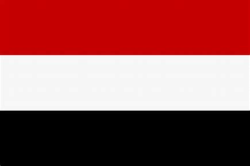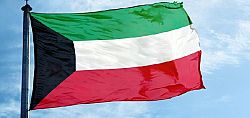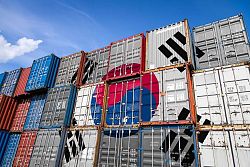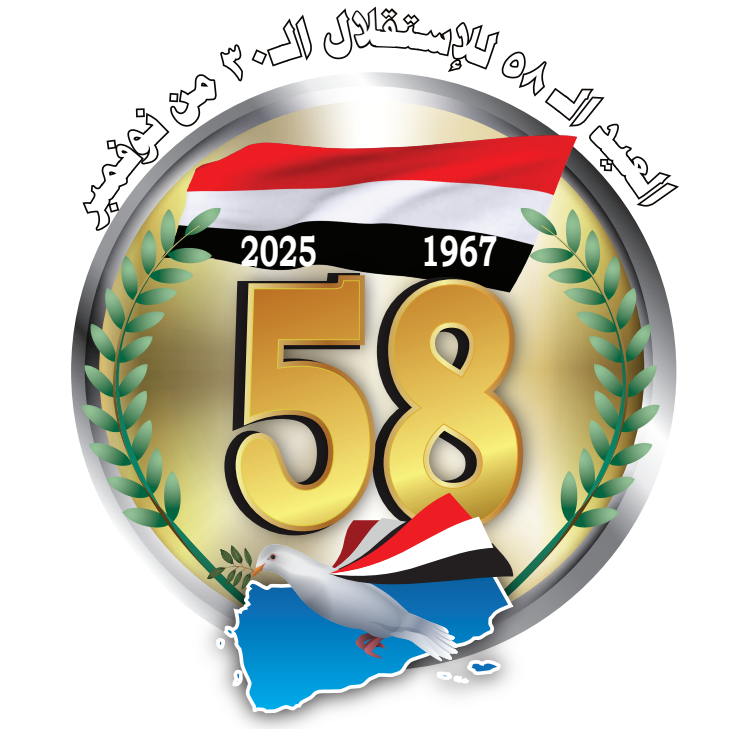
Yemen Strongly Condemns Blatant Iranian Attacks on Saudi Arabia
The Republic of Yemen has strongly condemned the blatant and cowardly Iranian attacks targeting the territory of the sisterly Kingdom of Saudi Arabia, describing them as a clear violation of its sovereignty and an unacceptable assault on its security and stability.

Kuwait Condemns Iranian Attack Targeting Its Territory
The State of Kuwait has strongly condemned a “heinous Iranian attack” that targeted its territory on Saturday morning, calling it a flagrant violation of Kuwait’s sovereignty, airspace, international law, and the Charter of the United Nations.

Korea large companies' exports rise 10 percent
Large companies' exports in South Korea rose approximately 10 percent year-on-year in the fourth quarter of last year, driven by increased global demand for semiconductors.

Saudi League: Al-Nassr, Al-Ettifaq and Neom Secure Victories Over Al-Ittihad, Damac and Al-Riyadh
Al-Nassr defeated its guest Al-Ittihad 2–0 in the match that brought them together at Al-Awwal Park Stadium in Riyadh, as part of the 21st round of the Saudi Professional League.
Last Update: ،
2026/03/01
Time
09:21:35
Latest News:
 Republic of Yemen Condemns Iranian Attacks on Several Sisterly States
Republic of Yemen Condemns Iranian Attacks on Several Sisterly States
 Prime Minister Receives Letter from UNESCO Director-General
Prime Minister Receives Letter from UNESCO Director-General
 Ambassador of Yemen Meets Indonesian Coordinating Minister for Legal Affairs, Human Rights
Ambassador of Yemen Meets Indonesian Coordinating Minister for Legal Affairs, Human Rights
 International Association (Al-Ameen) Provides over 9,000 Medical Services During January 2026
International Association (Al-Ameen) Provides over 9,000 Medical Services During January 2026
 President al-Alimi Congratulates Dominican Republic on its Independence Anniversary
President al-Alimi Congratulates Dominican Republic on its Independence Anniversary
Latest News:
 Republic of Yemen Condemns Iranian Attacks on Several Sisterly States
Republic of Yemen Condemns Iranian Attacks on Several Sisterly States
 Prime Minister Receives Letter from UNESCO Director-General
Prime Minister Receives Letter from UNESCO Director-General
 Ambassador of Yemen Meets Indonesian Coordinating Minister for Legal Affairs, Human Rights
Ambassador of Yemen Meets Indonesian Coordinating Minister for Legal Affairs, Human Rights
 International Association (Al-Ameen) Provides over 9,000 Medical Services During January 2026
International Association (Al-Ameen) Provides over 9,000 Medical Services During January 2026
 President al-Alimi Congratulates Dominican Republic on its Independence Anniversary
President al-Alimi Congratulates Dominican Republic on its Independence Anniversary
SOFIA: Climate Change Could Exacerbate Risk of Water Scarcity in Vulnerable Areas in Bulgarian, Scientists Say
[12/03/2024 07:23]
SOFIA-SABA
Bulgaria's water resources are expected to decline as a result of climate change.
This could exacerbate the risk of water scarcity in vulnerable areas and, in years with particularly adverse conditions, elsewhere, said Assoc. Prof. Emil Gachev during an event titled "Is it a myth that Bulgaria is rich in water resources?" which was held in Sofia on Tuesday.
The forum was organized by the Climateka platform on the occasion of World Water Day, March 22, Bulgarian News Agency (BTA), reported.
According to data for the period 1990-2018, Bulgaria's freshwater resource is about 100 billion cubic metres per year.
"This is a bit deceptive, because three-quarters are transit waters of the Danube. The internal runoff on the territory of the country is about 25% of the total amount," Gachev said, adding that there is unevenness of the runoff - it varies from 10 to 30 billion cubic metres per year depending on rainfall.
The main use of water in the past in Bulgaria was in industry and irrigated agriculture, but after the crisis in these two sectors, the use of water resources has decreased from over 14 to 5-6 billion cubic meters.
To date, most of Bulgaria's water use goes to industry, with much smaller shares going to agriculture, forestry and drinking water.
According to Assoc. Prof. Gachev's data, about 100 litres per day is the water consumption per person in households in Bulgaria.
He added that the determination of water losses is usually difficult, but 55-60% of water in Bulgaria is lost in the process of delivery to consumers, with some estimates as high as 70%. In Germany, these losses are estimated at 3 to 5%, according to BTA
Bulgaria's water resources are expected to decline as a result of climate change.
This could exacerbate the risk of water scarcity in vulnerable areas and, in years with particularly adverse conditions, elsewhere, said Assoc. Prof. Emil Gachev during an event titled "Is it a myth that Bulgaria is rich in water resources?" which was held in Sofia on Tuesday.
The forum was organized by the Climateka platform on the occasion of World Water Day, March 22, Bulgarian News Agency (BTA), reported.
According to data for the period 1990-2018, Bulgaria's freshwater resource is about 100 billion cubic metres per year.
"This is a bit deceptive, because three-quarters are transit waters of the Danube. The internal runoff on the territory of the country is about 25% of the total amount," Gachev said, adding that there is unevenness of the runoff - it varies from 10 to 30 billion cubic metres per year depending on rainfall.
The main use of water in the past in Bulgaria was in industry and irrigated agriculture, but after the crisis in these two sectors, the use of water resources has decreased from over 14 to 5-6 billion cubic meters.
To date, most of Bulgaria's water use goes to industry, with much smaller shares going to agriculture, forestry and drinking water.
According to Assoc. Prof. Gachev's data, about 100 litres per day is the water consumption per person in households in Bulgaria.
He added that the determination of water losses is usually difficult, but 55-60% of water in Bulgaria is lost in the process of delivery to consumers, with some estimates as high as 70%. In Germany, these losses are estimated at 3 to 5%, according to BTA
Key words:
SABA Bulgaria's - According - determination - particularly - consumption - resources?" - agriculture - households - conditions - exacerbate - Kuwait Condemns Iranian Attack Targeting Its Territory
Kuwait Condemns Iranian Attack Targeting Its Territory Qatar Strongly Condemns Targeting of Its Territory and Affirms Right to Respond
Qatar Strongly Condemns Targeting of Its Territory and Affirms Right to Respond Casualty Toll from Israeli Offensive on Gaza Rises to 72,070 Martyrs, 171,738 Injured
Casualty Toll from Israeli Offensive on Gaza Rises to 72,070 Martyrs, 171,738 Injured German Chancellor Says Europe Must Stand Strong
German Chancellor Says Europe Must Stand Strong  Israeli Aggression Leaves 71,769 Gazans Martyred, 171,483 Injured
Israeli Aggression Leaves 71,769 Gazans Martyred, 171,483 Injured  Massive 7.0 Magnitude Earthquake Strikes Alaska, USA
Massive 7.0 Magnitude Earthquake Strikes Alaska, USA Hundreds of Israeli Settlers Storm Al-Aqsa Mosque Compound in Occupied Jerusalem
Hundreds of Israeli Settlers Storm Al-Aqsa Mosque Compound in Occupied Jerusalem Bulgarian Film "Made in EU" Wins Top Honor at Prestigious French Festival
Bulgarian Film "Made in EU" Wins Top Honor at Prestigious French Festival US Deploys Aircraft Carrier to Caribbean Amid Rising Tensions with Venezuela
US Deploys Aircraft Carrier to Caribbean Amid Rising Tensions with Venezuela Five International Food Exhibitions welcome visitors at Sofia Inter Expo Centre
Five International Food Exhibitions welcome visitors at Sofia Inter Expo Centre


